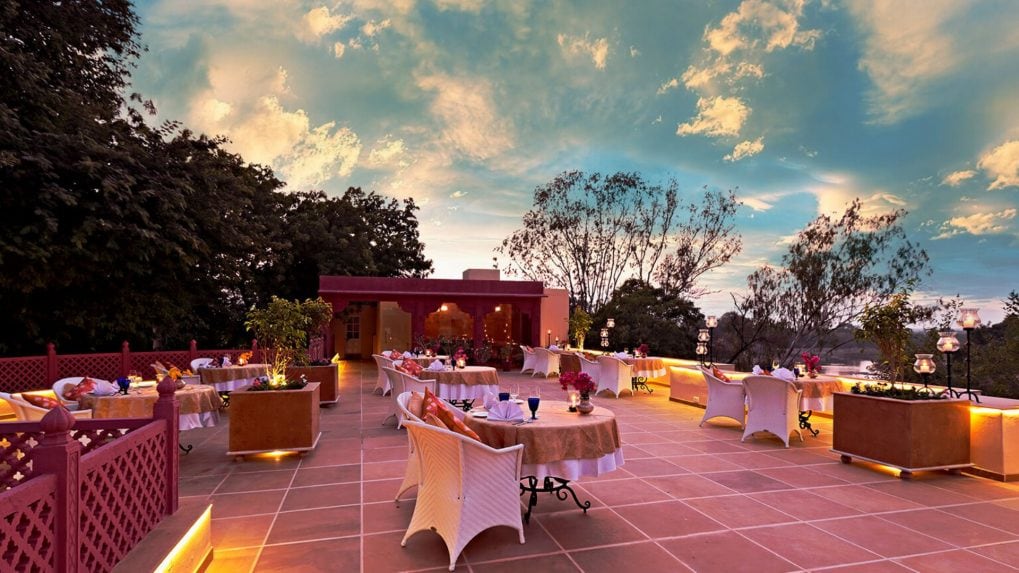How it Works
WPP, Havas, Omnicom: Are advertising’s biggest holdcos recasting agencies as AI Operating Systems?

A new GST slab revision aims to make travel and vacations more affordable for India’s middle class. Industry experts say that with most travel-related services and expenses now under the 5% GST slab, the hospitality industry, travelers, and pilgrims can all expect significant benefits as domestic tourism continues to grow.
According to the new GST structure, a room with a tariff of up to Rs 7,500 will attract 5% GST--down from 12% earlier--starting September 22. Previously, rooms with a tariff up to Rs 1,000 per night were exempt from GST, while those between Rs 1,000 and Rs 7,500 attracted 12% GST.
Meanwhile, GST on economy-class air travel and AC-class train tickets will remain unchanged at 5%. Non-AC train travel, including Sleeper class and 2S class, will continue to be exempt from GST.
"The domestic travel and tourism sector, especially in the mid and upper-mid markets, stands to benefit significantly. Additionally, retaining economy airfares at the lower 5% slab ensures that travel remains accessible," said Mahesh Iyer – Managing Director and Chief Executive Officer, Thomas Cook (India) Limited.
According to the luxury villa and homestay chain StayVista, if a family of four books two hotel rooms for Rs 5,000 per night and spends Rs 1,000 per person on meals per night, they would save roughly 12-15% under the new GST regime.
Explaining with a hypothetical example, the hospitality company said a family that typically takes 15 days of holidays a year would effectively save the equivalent of two days of vacation costs.
"Whether families choose to use these savings to upgrade their stays or extend their vacations will become clearer over the next 9-12 months," it said.
For example, if a family spends Rs 20,000 on hotel stays, taxes were previously Rs 2,400 at 12%, but are now Rs 1,000 at 5%, saving Rs 1,400. If the family spends Rs 8,000 on food, taxes were previously Rs 1,440 at 18%, but are now Rs 400 at 5%, resulting in a saving of Rs 1,040. The combined savings on stay and food add up to Rs 2,440, which is nearly 9% of the total cost (Rs 20,000 + Rs 8,000 = Rs 28,000).
For properties like Rohet Garh, especially during the off-season, the GST reduction will have a significant positive impact, said Avijit Singh, Owner of House of Rohet. Singh added that the heritage hotel will pass on the benefit of reduced rates to guests in both room tariffs and food charges.
"Currently, in the off-season, room rates at Rohet Garh are below Rs 7,500, which means the property falls under a single GST slab per bill. Our hotel and restaurants, which are tied to the room's GST rate, will now also be billed at just 5%"
According to Singh, the GST overhaul translates to an average 7% reduction in room tariffs and a further 7% reduction in all food and beverage expenses. "Guests will save at least 14% or more on their total bill, making their stay more affordable and appealing, particularly during the off-season," he added.
According to the data from the Ministry of Tourism, 250 crore domestic tourists travelled across all Indian states and union territories in FY2024--a 45% year-on-year rise. Tourist footfall was highest in Uttar Pradesh (48 crore approx), followed by Tamil Nadu (28.6 crore), Karnataka (28.4 crore), Andhra Pradesh (25.4 crore), Rajasthan (17.9 crore), and Gujarat (17.8 crore).
From purpose-driven work and narrative-rich brand films to AI-enabled ideas and creator-led collaborations, the awards reflect the full spectrum of modern creativity.
Read MorePraveen Someshwar, Managing Director and CEO of Diageo India, joins the Grand Jury of the Storyboard18 Awards for Creativity, highlighting the awards’ focus on work that blends cultural relevance with strategic and commercial impact.